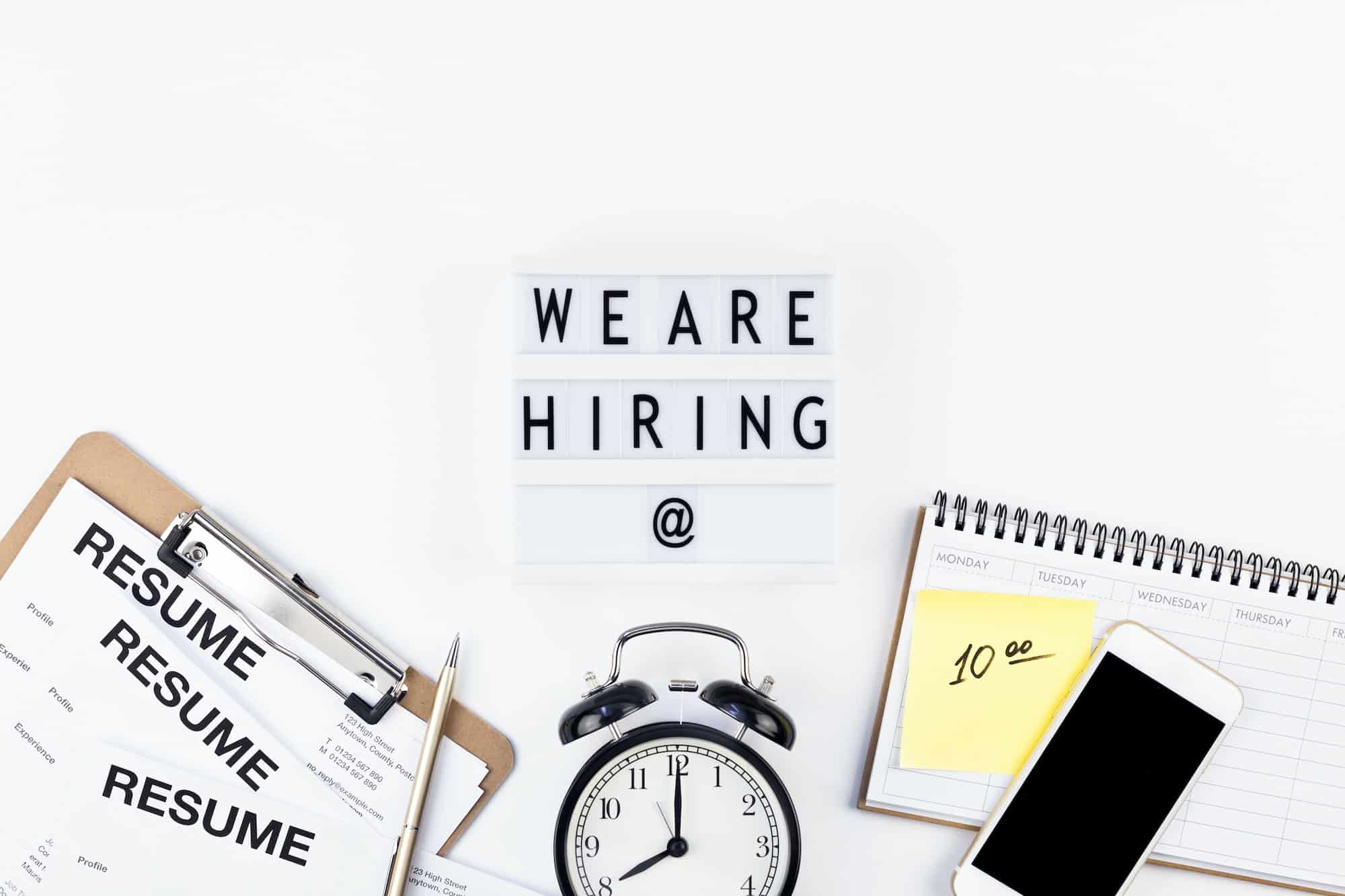Hiring a new employee is an important decision for any business. Not only does it affect the day-to-day operations of the company, but it also has long-term implications for the business as a whole.
As a result, it’s important to take the time to carefully consider all aspects of the hiring process. Although the process can be time-consuming, taking the necessary steps ensures that the best candidate is selected for the job.
In this blog post, we’ll discuss how long does hiring process takes, on average. We’ll also touch on some of the factors that can impact the length of time it takes to hire someone.
Steps in the Hiring Process
The steps in the hiring process can vary depending on the organization and position but generally follow a similar pattern.
- Recruitment: The first step is identifying qualified candidates for the job may involve posting job listings on recruitment websites, using social media platforms, attending job fairs and networking events, or placing an ad in a newspaper or magazine.
- Application & Screening: After identifying potential candidates, employers review applications and resumes to determine which applicants meet the qualifications necessary for the position. Phone screenings or video interviews may also be conducted at this stage, depending on the organization’s size and complexity of roles.
- Interviews: Employers typically conduct several interviews to evaluate a candidate’s skills, experience, and fit with the company culture. These can range from one-on-one meetings with the hiring manager to group interviews or panel discussions.
- Assessments: Certain roles may require specific tests or assessments to gauge a candidate’s aptitude for specific job-related tasks, including cognitive ability tests, personality questionnaires, or work simulations during the interview process.
- Reference Checks: Employers often contact candidates’ references to gain further insight into their accomplishments, strengths, and weaknesses. They may also use this opportunity to confirm the information provided on resumes and applications is accurate and true.
- Offer & Negotiation: After the employer has selected their preferred candidate, they will then make an offer of employment, which may include salary and benefits packages and other aspects such as vacation time or flexible working hours. The negotiation stage is when candidates can discuss any amendments to the offer that suit their needs and expectations.
- Onboarding: Once the offer is accepted, employers can begin onboarding new hires, which involves providing information about company policies and benefits packages and introducing them to any necessary technology required for the job. It’s also important to take steps to ensure they feel welcomed by their new colleagues and are given appropriate support throughout their transition into the role.
Following these steps can help employers select qualified and suitable candidates for the job and prepare new hires for their roles.
Having a clear plan of steps in the hiring process is essential for any organization looking to find the best talent and take steps to onboard them effectively. Ensures both parties are on the same page, setting up employees for a successful transition into their new roles.
What Is The Hiring Process?
The hiring process is a company’s set of steps to find and select the best candidate for a job. The process typically begins with a job posting, followed by applicant screening and interviewing. The final step is usually extending an offer of employment.
The first step in the hiring process is typically to create a job posting. This can be done internally, through an employment agency, or on a job board or website.
Once the posting is created, potential candidates will begin to apply for the position. The next step is to screen the applications, to identify the candidates who are the best fit for the job. This usually involves conducting initial interviews, either in person or over the phone.
After narrowing down the pool of candidates, the next step is to conduct more in-depth interviews with the most promising applicants. These interviews may be conducted by a panel of interviewers or by just one person.
Ultimately, the goal is to identify the candidate who is the best match for the job and extend an offer of employment.
How Long Does Hiring Process Take?
Hiring a new employee is a multi-step process that can take several weeks to complete. This is a difficult question to answer, as it varies depending on the specific needs of the business.

In general, however, businesses should expect the hiring process to take about 27-35 days. This includes time for writing and posting the job listing, reviewing resumes and applications, conducting interviews, and making a final decision.
By taking the time to consider each step of the process carefully, businesses can ensure they make the best possible hire for their needs.
How Long Is Too Long For A Hiring Process?
The hiring process is an essential part of any business. It helps to ensure that the right people are in the right jobs and that everyone is working towards the same goals.
However, If a company takes more than 4 weeks to hire someone, it may miss out on valuable talent. In addition, a lengthy hiring process can be frustrating for both the applicants and the employees who are already working for the company.
The best way to avoid these problems is to have a clear and concise hiring process that is well-organized and efficient. By following these simple guidelines, companies can ensure that they are getting the most out of their hiring process.
How Long Does It Take To Decide Who To Hire?
The hiring process can be lengthy and complicated, but many interviewers make quick decisions on who to hire. Generally, in most cases, it takes about 15 to 20 minutes for an interviewer to decide if a candidate is a good fit for the position.
However, there are a number of factors that can influence this decision-making process. For instance, the interviewer’s own personal biases and opinions can play a role in who they choose to hire.
In addition, the amount of experience the candidate has, as well as the clarity and passion with which they discuss their qualifications, can also be deciding factors.
Ultimately, though, it is up to the interviewer to decide who is the best fit for the job – and sometimes, this decision is made in just a matter of minutes.
How Can I Speed Up My Hiring Process?
Hiring can be a long and complicated process, especially if you’re not sure what you’re doing. There are a lot of moving parts to the hiring process, from finding the right candidates to conducting interviews and ultimately making an offer.
If you’re looking to speed up your hiring process, here are a few things you can do:
- Define your Ideal Candidate
The better you understand who you’re looking for, the easier it will be to find them. Spend some time identifying the skills, experience, and personal qualities that are most important for the role you’re trying to fill.
- Use Social Media
Social media is a great way to reach out to potential candidates who might not otherwise see your job posting. Use sites like LinkedIn and Twitter to post job openings and attract attention from qualified candidates.
- Be Efficient with your Interview Process
Once you’ve identified a few strong candidates, move quickly to set up interviews. The sooner you can meet with someone in person, the better idea you’ll have of whether or not they’re a good fit for the position.
By following these tips, you can streamline your hiring process and make it more efficient. Ultimately, this will save you time and help you find the best candidates for the job.
Why Is The Hiring Process So Slow?
The hiring process usually is slow because the employer wants to find the most suitable candidate for the job who will stay with the company for a long time. There are many reasons that can attribute to a lengthy hiring process.

- Decision-Making
One of the main reasons is that employers want to be very careful in their decision-making because hiring someone is a big responsibility. The employer has to ensure that the person they are Hiring has the required skills, qualifications, and experience needed for the role they are applying for.
- A large Number of Applications
The hiring process can also be slow because employers often receive a large number of applications for each role they advertise and it can take time to go through all of them.
Although it can be frustrating for candidates who are waiting to hear back from an employer, it is important to remember that taking time to make the right decision is crucial when Hiring someone.
By taking their time, employers can ensure that they find the best candidate for the role who will make a valuable contribution to their business.
Conclusion
Hiring can be time-consuming and difficult, but by taking the time to consider each step carefully, businesses can ensure they make the best possible hire for their needs.
Additionally, by having a clear and concise hiring process that is well-organized and efficient, companies can avoid many of the common problems associated with a lengthy hiring process.
By following these tips, you can streamline the hiring process and make sure that you are bringing on the best possible candidate for your business.
Frequently Asked Questions
Q: How long does the hiring process take?
A: The hiring process can take anywhere from a few days to several weeks, depending on the company’s needs.
Q: What if I’m not selected for the position?
A: Don’t be discouraged! The hiring process is often a long and competitive one, so even if you don’t get the job you’re after, keep trying. You’ll eventually find the perfect fit.
Q: How can I make myself more attractive to potential employers?
A: There are a few things you can do to increase your chances of being hired. First, ensure that your resume is up-to-date and tailored to the specific job you’re applying for.
Secondly, practice your interview skills so that you’re confident and able to sell yourself to the employer.
Finally, be sure to network and make connections within your industry – this can give you a leg up when it comes time to apply for jobs.





